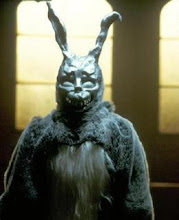Its the big thing that polarises political debates, the role of violence in political change. I have seen the debate go on and on. However, which is disturbing is the tendency of mainstream history to airbrush out certain types of violence, as can be seen in the Guardian today. Before we get into this point, lets start with what we mean by violence - Derrick Jensen writes that the difficult thing about violence is that we have but one word for many things. He writes that we have to use the same word for a mother bear defending her cubs from attack as a rapist; both are forms of violence. I agree; there are degrees of physical action are are distinct. So damage to property is not the same thing as damage to living things. Self-defence is not the same thing as starting a fight.
Once we have finished defining it we then need to recognise it. For example, today the Guardian had a bit piece on the Putney Debates:
By summer 1647, the Roundheads were winning the English civil war. At Marston Moor and Naseby, Oliver Cromwell's New Model Army had crushed the Cavaliers and King Charles I himself was now in custody. But among the victorious soldiers there was a gnawing fear that parliament and the army generals (or "grandees") were preparing to sell them out. Some MPs, fearing the religious militancy of the army and keen for a settlement with the king, wanted to cut soldiers' pay, disband regiments, refuse indemnity for war damage and pack them off to Ireland...Their grievances were taken up by Leveller agitators within the army rank and file. The Levellers ("who declared that all degrees of men should be levelled, and an equality should be established", according to critics) put forward a postwar manifesto entitled the Agreement of the People....It urged religious toleration ("The ways of God's worship are not at all entrusted by us to any human power"); a general amnesty and an end to conscription; a system of laws that must be "no respecter of persons but apply equally to everyone: there must be no discrimination on grounds of tenure, estate, charter, degree, birth or place"; regular, two-yearly parliaments and an equal distribution of MPs' seats by number of inhabitants. At its heart was a profound belief in human liberty and a conviction that politicians were as dangerous as princes when it came to undermining personal freedom. It was the people who were sovereign.
What the piece does not say is why these people were listened to - I would say because they were an army. What I think was missing is the very fact that ordinary people were able to push for such a radical agenda - because they had power, as Ian Bone noted in his book Bash the Rich:
Cromwell and Fairfax are increasingly exasperated by the leveller's demands for equality – not apparently made with any reference to religion, Christ, or god, as was the custom.
“By what right or power do you make these demands?” Inquires Fairfax. After a pause the reply came.
“By the power of the sword, Master Fairfax, by the power of the sword.” Whoops! Jesus Christ! What did he fucking say? Stick that up your warty old nose master Master Cromwell!

 Schnews DIY Guide
Schnews DIY Guide


No comments:
Post a Comment